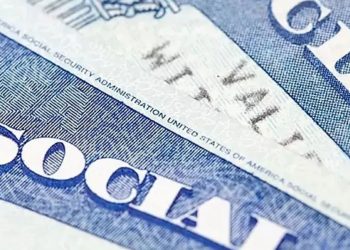The Social Security Administration (SSA), a lifeline for over 70 million Americans, is entering a new era of leadership and modernization. On May 6, 2025, Frank Bisignano was officially confirmed as the new Commissioner of the SSA, ushering in a period of reform that could reshape how the agency serves the public.
A Contentious Appointment Amid Political Division
Bisignano’s confirmation did not come easily. Approved by a narrow Senate vote of 53-47, his appointment reflected deep political disagreements over the future of Social Security. A veteran Wall Street executive and former CEO of Fiserv, Bisignano brings a private-sector mindset to a massive public institution. His experience in financial services and technology is expected to influence his approach to modernizing the SSA.
Transition from Dudek and Agency Restructuring
Bisignano replaces acting commissioner Leland Dudek, who led the agency through a turbulent period marked by staff cuts and structural changes. Under Dudek’s leadership, the SSA eliminated the Office of Civil Rights and Equal Opportunity and the Office of Transformation, redistributing their responsibilities across other departments.
Dudek had also proposed laying off 7,000 SSA employees, a move that sparked significant public backlash. Facing mounting pressure, the SSA eventually reversed the layoff plans, underscoring the challenges of managing a large federal agency during a time of heightened political and economic scrutiny.
Embracing AI and Technology to Improve Services
One of Bisignano’s top priorities is leveraging artificial intelligence (AI) to enhance the SSA’s efficiency. Among the early changes is the deployment of AI-driven telephone systems designed to reduce long wait times and assist in fraud prevention. Additionally, the agency has introduced digital access to Social Security numbers (SSNs), streamlining processes for both beneficiaries and administrators.
While these innovations aim to improve customer service and cut red tape, they have also raised concerns. Privacy advocates warn about potential data security risks, and some critics are wary of relying too heavily on automated systems that may introduce errors or limit human oversight.
Policy Reversals After Public Pushback
Several controversial proposals from the Dudek era were walked back following widespread criticism. These included efforts to cancel legal SSNs for certain immigrant populations and to stop the automatic issuance of SSNs for new citizens. The proposals drew legal challenges and were eventually abandoned due to public and political resistance.
Another point of contention emerged when the Department of Government Efficiency (DOGE), headed by Elon Musk, attempted to access SSA databases. This request triggered alarm among privacy advocates, who feared misuse of personal data. Federal courts have since ruled to restrict DOGE’s access to SSA information, reinforcing legal protections around sensitive personal data.
A Pledge to Preserve Social Security
During his Senate confirmation hearings, Bisignano sought to reassure both lawmakers and the public that Social Security would remain a publicly managed program. “I’ve never thought about privatizing,” he stated unequivocally. He emphasized that his mission is to improve the SSA’s operational effectiveness while maintaining its foundational role as a government-run benefit system.
Looking Ahead
As Bisignano begins his tenure, all eyes are on how he balances innovation with public trust. His leadership marks a clear departure from the recent past, signaling an intent to modernize without dismantling. For millions of retirees, disabled workers, and low-income families who rely on Social Security, the hope is that these reforms will lead to a more responsive, efficient, and secure system.











